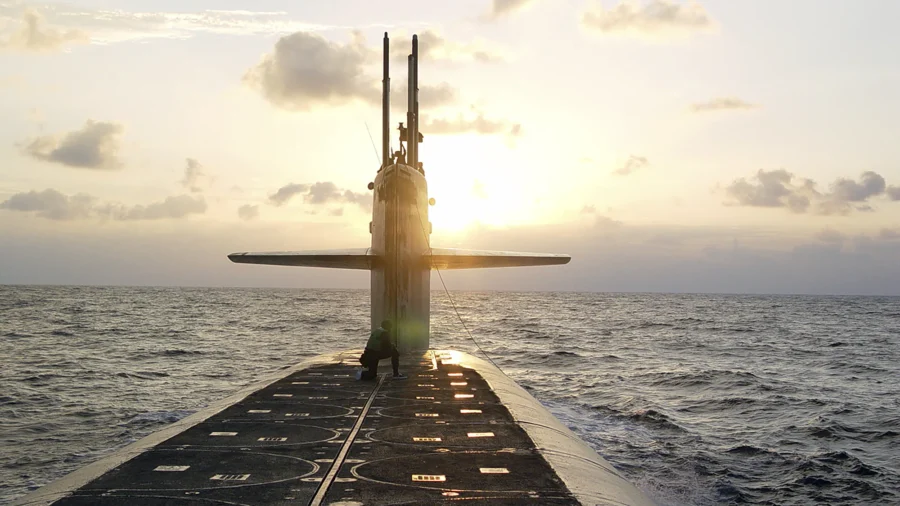The Biden administration may seek to deploy additional nuclear weapons amid increasing aggression by China and Russia, according to one official.
Expanding the number of deployed nuclear missiles would break with decades of U.S. policy but may be necessary in an era of great power competition, said Pranay Vaddi, the National Security Council’s top arms control official.
“Absent a change in adversary arsenals, we may reach a point in the coming years where an increase from current deployed numbers is required,” Mr. Vaddi said during a June 7 meeting of the Arms Control Association.
“If that day comes, it will result in a determination that more nuclear weapons are required to deter our adversaries and protect the American people and our allies and partners.”
Mr. Vaddi’s remarks follow the publication of a report late last year by the Congressional Commission on the Strategic Posture of the United States, which suggested that the United States expand and modernize its nuclear arsenal to deter increasing aggression by China and Russia.
“Given current threat trajectories, our nation will soon encounter a fundamentally different global setting than it has ever experienced: we will face a world where two nations possess nuclear arsenals on par with our own,” the report reads.
Madelyn Creedon, who serves on the commission that authored the report, also spoke at Friday’s meeting.
She said that China and Russia were on a “on a very aggressive path” to modernize their nuclear and conventional forces, and would likely need to be countered.
“This is extraordinarily important because it’s clear that both Russia and China in the long term want to replace the U.S. as the leader in the rules-based international order,” Ms. Creedon said. “And their goal is to replace the U.S. and the West with something more conducive to their authoritarian regimes.”
The United States currently adheres to a limit of 1,550 deployed strategic nuclear warheads in accordance with the New START treaty established with Russia in 2010. Moscow claimed last year that it had “suspended” its participation in the treaty but was still observing the limits freely, a move Washington claimed was “legally invalid.”
Meanwhile, the Chinese Communist Party (CCP) is rapidly increasing its nuclear arsenal and is expected by the Pentagon to field more than 1,000 nuclear warheads by 2030. To that end, the CCP already fields more long-range missile launchers than the United States.
With the world’s three largest nuclear powers all jostling for political influence on the global stage, Ms. Creedon suggested that a global nuclear conflict, should one occur, would likely stem from a regional conflict that spiraled out of control.
The belief that the United States ought to increase its nuclear footprint is far from universal, however.
Rep. John Garamendi (D-Calif.), who delivered keynote remarks during the meeting’s morning session, said that the nation already had “sufficient firepower to destroy any adversary” and that it should prioritize “arms control and deescalation” instead.
“It’s well past time for voices of restraint and risk reduction to be heard in the nuclear arms debate,” Mr. Garamendi said.
“We as a whole society must decide what cost we should bear and what risks we must take. Our nuclear strategy must be balanced and rational, allowing for deterrence and defensive actions while encouraging collaboration toward a more peaceful future.”
Reuters contributed to this report.
From The Epoch Times

